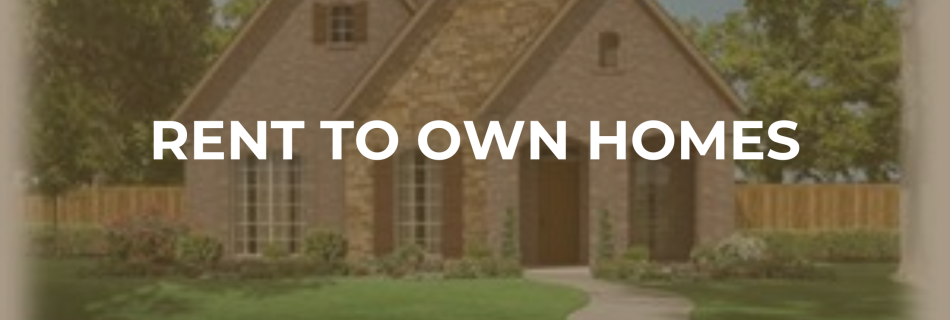For many aspiring homeowners in North Carolina, traditional mortgage financing can feel out of reach. Rising property values, stricter lending requirements, and the challenge of saving for a down payment have left many families searching for alternative paths to ownership. Two popular solutions—lease purchase and lease option agreements—offer renters the chance to move into a home today while planning to buy it tomorrow. While the terms are often used interchangeably, they carry important differences that can dramatically affect a buyer’s future. Understanding these distinctions is essential for anyone considering rent-to-own opportunities in the Tar Heel State.
Defining Lease Option Agreements
A lease option agreement is essentially a rental contract with an added clause: the tenant has the right, but not the obligation, to purchase the property at the end of the lease term. This arrangement provides flexibility. Tenants can live in the home, test the neighborhood, and decide later whether buying makes sense. In North Carolina, lease option agreements typically require an upfront option fee, which secures the tenant’s right to purchase. If the tenant chooses not to buy, the option fee is usually non-refundable, but they are not legally bound to complete the purchase. For renters who want to keep their options open, this structure offers breathing room.

Defining Lease Purchase Agreements
Lease purchase in North Carolina agreements, by contrast, are more binding. In this arrangement, the tenant agrees upfront that they will buy the property once the lease term ends. The contract specifies the purchase price and timeline, leaving little room for reconsideration. While this creates certainty for sellers, it also places significant responsibility on tenants. In North Carolina, lease purchase agreements are enforceable contracts, meaning that failing to complete the purchase could expose tenants to legal or financial consequences. For buyers confident in their ability to secure financing, this path can be a direct bridge to ownership.
Financial Considerations
Both lease option and lease purchase agreements involve financial commitments beyond standard rent. Tenants often pay above-market rent, with a portion credited toward the eventual purchase. They may also pay an upfront fee—called an option fee in lease option contracts or earnest money in lease purchase agreements. In North Carolina, these fees vary widely, but they can represent thousands of dollars. Buyers should carefully review how credits and fees are applied, as not all contracts guarantee that rent credits reduce the final purchase price. Sellers, meanwhile, benefit from steady rental income and a committed buyer pool.
Benefits of Lease Option Agreements
Lease option agreements are particularly appealing to North Carolina residents who need time to prepare for homeownership. Buyers with credit challenges can use the lease period to repair their financial profile. Families relocating to new cities such as Raleigh or Charlotte can test the area before committing long-term. The flexibility of a lease option reduces risk, allowing tenants to walk away if circumstances change. For many, this arrangement feels like a trial run for homeownership, offering stability without locking them into a purchase they may not be ready to complete.
Benefits of Lease Purchase Agreements
Lease purchase agreements, on the other hand, provide certainty. Buyers know from the start that they will own the home, and sellers gain confidence that the transaction will close. This structure can be advantageous in competitive markets, where locking in a purchase price protects buyers from rising property values. In North Carolina’s fast-growing urban centers, this certainty can be a powerful advantage. For motivated buyers who are financially prepared, lease purchase agreements streamline the path to ownership and eliminate the uncertainty of traditional rent-to-own models.
Risks and Challenges
Despite their advantages, both agreements carry risks. Lease option tenants may lose their option fee and rent credits if they decide not to buy. Lease purchase tenants face greater consequences if they cannot secure financing when the lease ends. In North Carolina, disputes often arise when contracts are unclear about responsibilities such as maintenance, repairs, or property taxes. Buyers should seek legal guidance before signing, and sellers should ensure compliance with state laws. Transparency and documentation are critical to avoiding costly misunderstandings.
Choosing the Right Path in North Carolina
The choice between lease option and lease purchase depends largely on a buyer’s financial readiness and long-term goals. Those who need flexibility, time to improve credit, or the chance to explore a neighborhood may prefer lease option agreements. Those who are confident in their ability to secure financing and want certainty may lean toward lease purchase contracts. In either case, North Carolina buyers should work with experienced real estate professionals who understand the nuances of local housing laws and can guide them through the process.
Conclusion
Lease option and lease purchase agreements both offer North Carolina renters a pathway to homeownership, but they serve different needs. Lease options provide flexibility and breathing room, while lease purchases deliver certainty and commitment. By understanding the differences, weighing the financial implications, and seeking professional guidance, buyers can choose the path that best fits their circumstances. In a housing market where opportunities can feel limited, these agreements open doors for families across the state, turning the dream of homeownership into a realistic goal.








